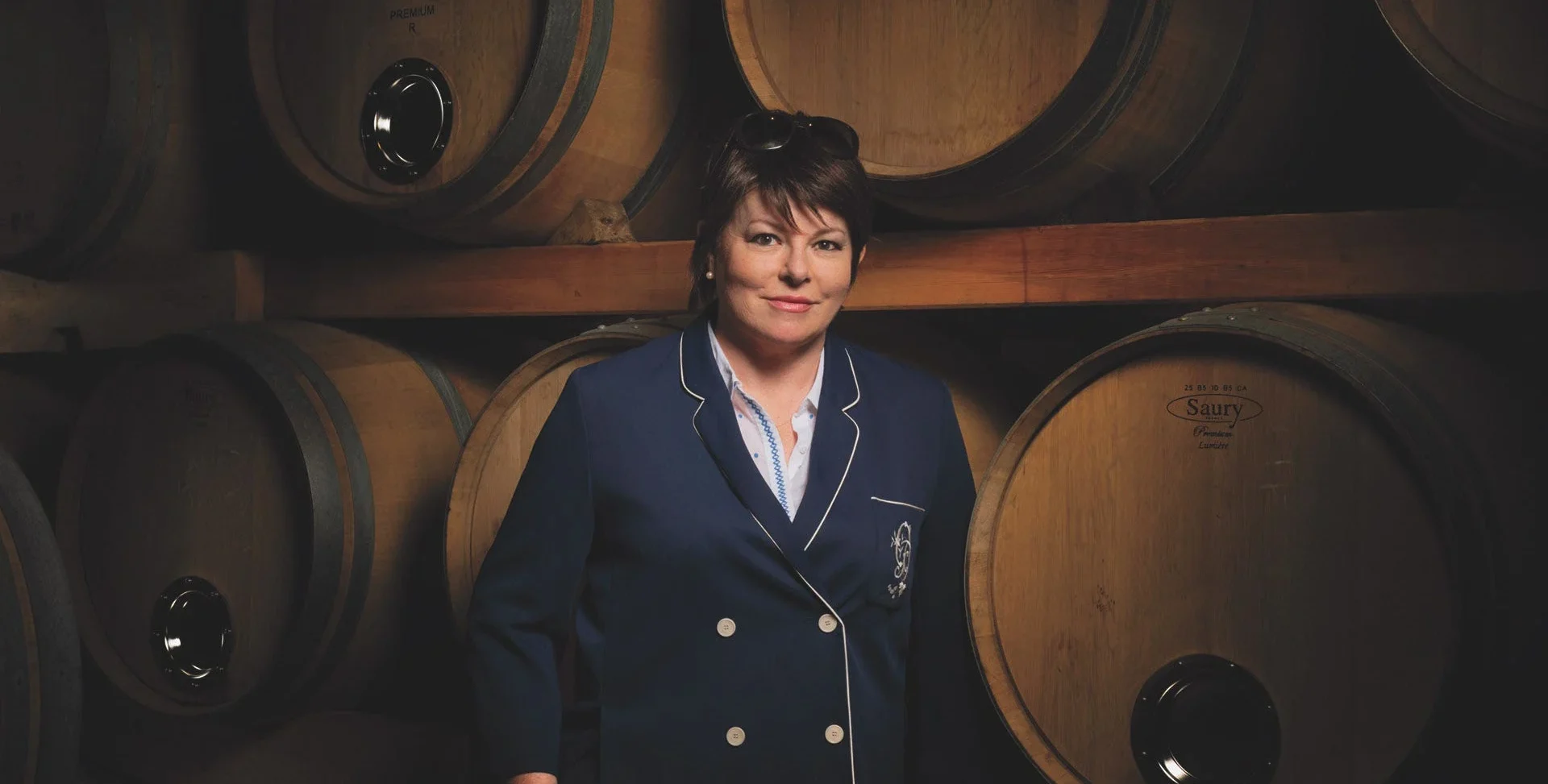Photo Credit: Patrick Desgraupes
Meet Pascale Peyronie
Estate: Domaines Peyronie (Château Fonbadet)
Appellation: Pauillac
Focus: 60% Cabernet Sauvignon, 20% Merlot, 15% Cabernet Franc, 5% Petit Verdot and Malbec
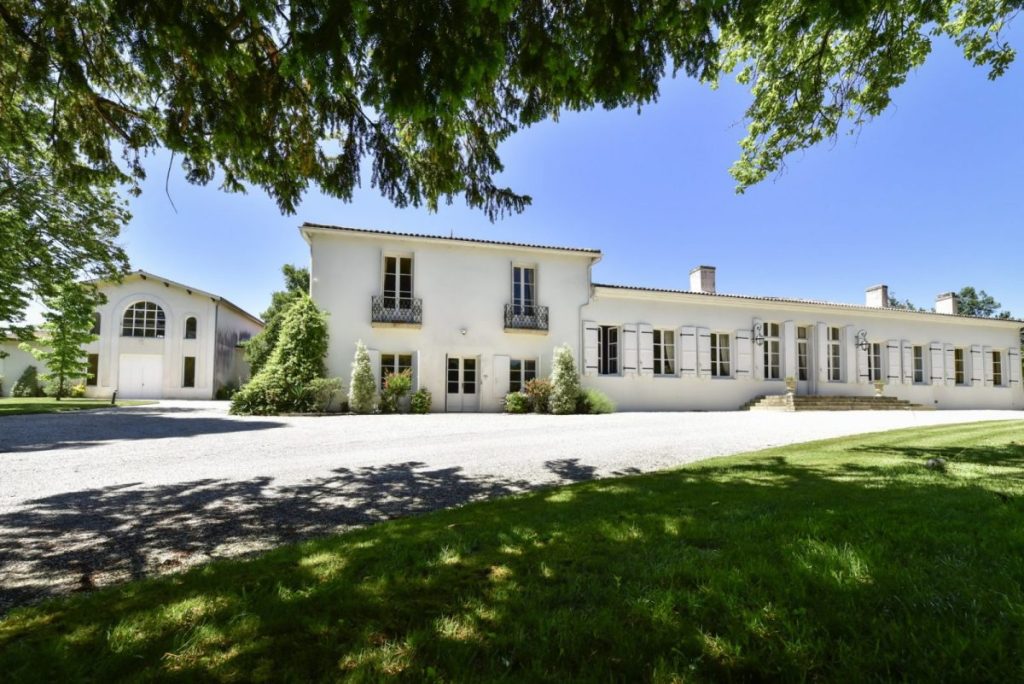
Photo credit: Médoc-Vignoble Tourism
Background
Château Fonbadet is nestled in the heart of Pauillac, a sub-appellation of the Left Bank’s Médoc region in Bordeaux, with roots dating back to the early 1800s. Pierre de Gérès de Loupes, a Knight of Malta, first acquired the estate and elevated the quality of its wines. Over time, this commitment to excellence earned the estate the Crus Bourgeois Supérieur classification, which recognizes dependable, high-quality wines from Médoc with aging potential. While the estate has changed ownership over the years, its commitment to excellent wines remains steadfast. In 1950, the Peyronie family acquired the 9.8-acre Château Fonbadet, and through strategic expansions and dedication to the estate, patriarch Robert Peyronie and his son Pierre grew the estate to around 32 acres.
Today, Château Fonbadet is under the stewardship of Pascale Peyronie, who trained alongside her father and elevated Domaines Peyronie to new heights. With expertise in both oenology and law, Pascale brings a unique blend of artistry and tradition to the estate. Growing up surrounded by the sights and scents of winemaking, her earliest memory is the aroma of fermentation during harvest. Under her leadership, the estate continues its unwavering dedication to producing exceptional wines from Pauillac’s esteemed terroir.
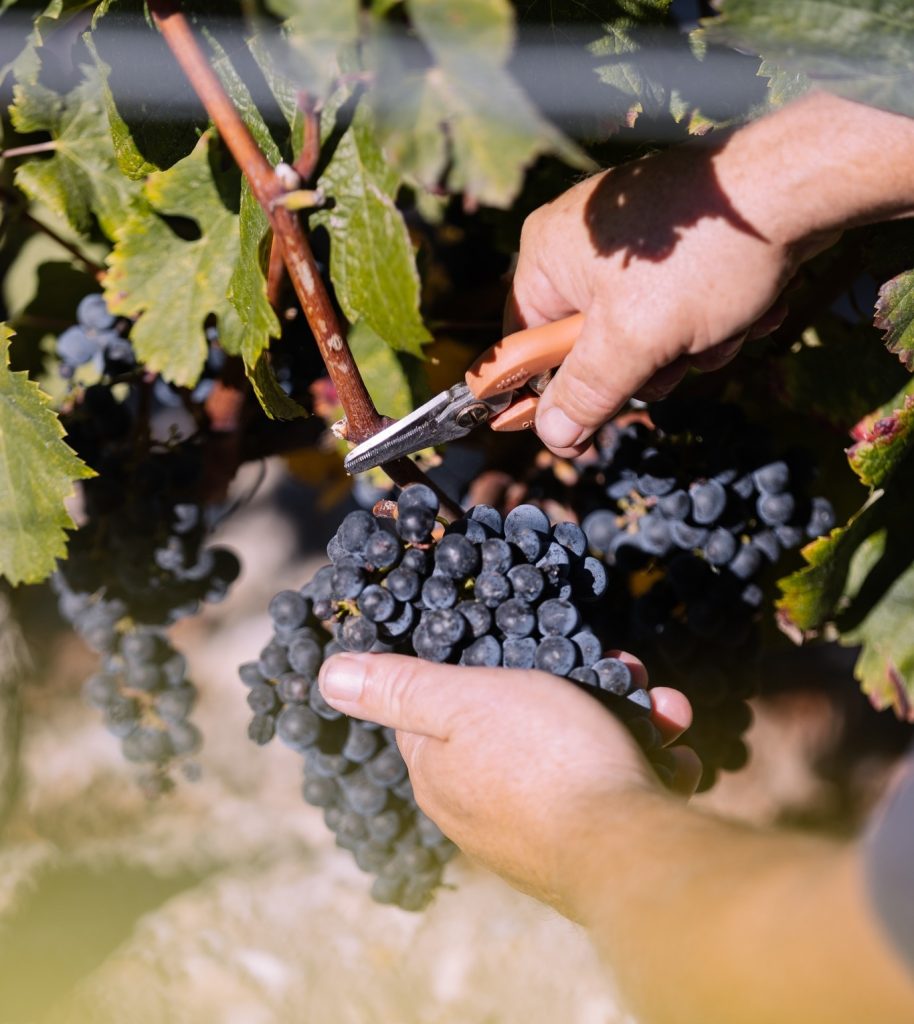
Photo Credit: Château Fonbadet
Vineyards
The Pauillac sub-appellation lies in the heart of Médoc, just north of Bordeaux. Thanks to its proximity to the Gironde Estuary, the region benefits from a unique microclimate, characterized by relatively warm, humid conditions, abundant sunlight and favorable air circulation.
Château Fonbadet’s vineyard is divided into three sections, benefiting from gravel and sand soils to the north, lay-limestone soils to the south and, in some cases, over 50-year-old vines.
To protect the harvest from adverse weather conditions, a statuette of Saint Peter was installed on the estate grounds—a custom Pascale introduced herself, rooted in European winemaking culture. Traditionally believed to offer protection against bad weather, placing a statue or image of Saint Peter in the vineyard is thought to shield the crops from harm. For Pascale, this is not just an act of faith but also a way to honor the rich history of Bordeaux’s viticulture.
The estate’s fifty-year-old vineyard is maintained through systematic replanting, resulting in one of the lowest yields in the Pauillac appellation, which helps ensure consistently high-quality harvests. The traditional Médoc pruning technique, Double Guyot, naturally controls yields, while time-honored practices such as seasonal plowing, hoeing, and earthing up maintain the soil.
Following flowering, moderate leaf removal is performed to improve airflow and sunlight exposure for the grapes. Approximately one hundred days later, tasting and monitoring the grapes’ ripeness begin, ensuring that each harvest reaches optimal maturity. This hands-on, meticulous approach embodies Pascale’s deep respect for both the land and the winemaking tradition that has been passed down through generations.
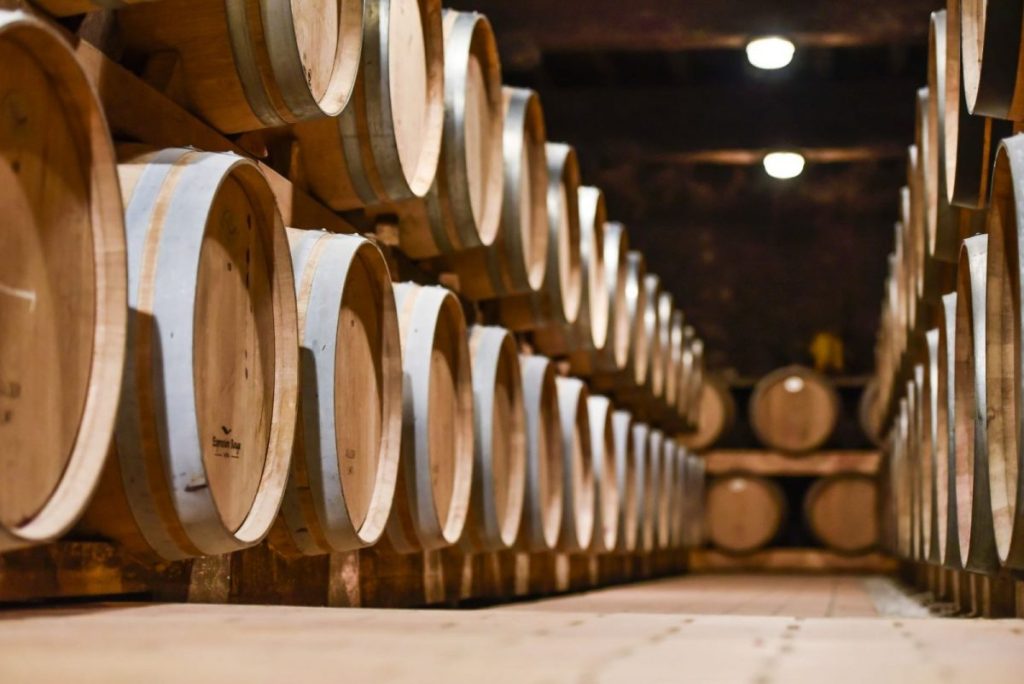
Photo Credit: Médoc-Vignoble Tourism
Wines
The Peyronie family prioritizes the protection of biodiversity and sustainability in every aspect of the estate’s winemaking. The grapes at Domaines Peyronie are traditionally harvested by hand, and for over twenty years, the estate has committed to sustainable farming practices and biocontrol techniques.
After complete de-stemming and light crushing, harvested grapes are placed in concrete tanks, with each variety fermented separately. A maceration period of four to six weeks, depending on the vintage, facilitates the extraction of color, tannins, and other key components of the wine.
The wine is then transferred into barrels, with 50% of the barrels being new oak, a choice that prevents the robust tannins from the old vines from being overpowered by the new wood. The 18-month aging process in barrels imparts roundness, silkiness, and elegance to the wines of Domaines Peyronie. This process includes regular topping-up and traditional racking without filtration, culminating in a second blending two years after harvest to allow the wines to “meld” and reach perfect harmony.
The estate produces two wines: Château Fonbadet and Harmonie de Fonbadet. Château Fonbadet is a red blend of Cabernet Sauvignon and Merlot. With rich aromatic depth and velvety tannins, this wine combines intensity and elegance, evolving with age to reveal complex aromas and greater harmony.
Harmonie de Fonbadet is an easy-drinking red blend that shares the same high-quality craftsmanship as Château Fonbadet. While ready to enjoy upon release, it can also benefit from aging to enhance its depth and complexity.
Through both of these wines, Pascale masterfully combines the rich heritage of Pauillac winemaking with a forward-thinking approach, ensuring that each vintage not only honors tradition but also embraces the future of the craft. With an unwavering commitment to quality, sustainable farming, and expert craftsmanship, her wines are a true reflection of both legacy and innovation.
The Chartreuse
Pascale’s latest project is the Chartreuse de Fonbadet, a luxurious addition to Domaines Peyronie, which offers a unique retreat for wine lovers in the heart of the Médoc. Set in a classic Bordeaux mansion, it features elegant amenities like a spa, gym and outdoor pool with views of the estate’s vineyards. The Chartreuse also showcases Pascale’s personal art collection, which includes both classic and contemporary works, blending the worlds of fine wine and art in the heart of Bordeaux’s iconic wine country.
“Wine is not a financial product. Wine is, above all, a moment of sharing, of conviviality, of friendship.” – Pascale Peyronie
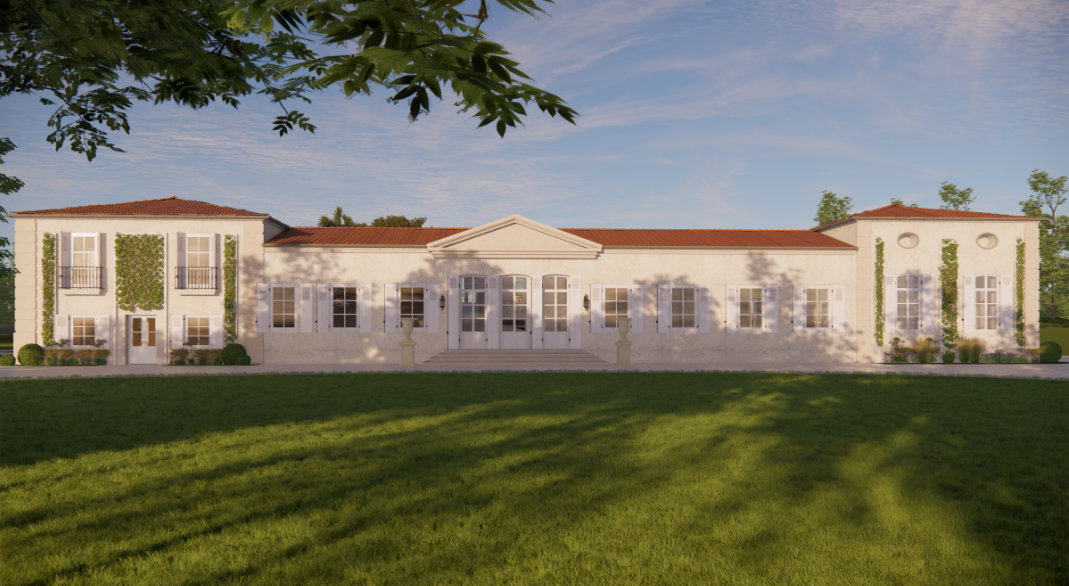
Photo Source: Domaines Peyronie
Explore more from Domaines Peyronie
Thirsty for more? Follow Clink Different’s Instagram and Facebook to stay up-to-date on the latest blogs and upcoming events.
